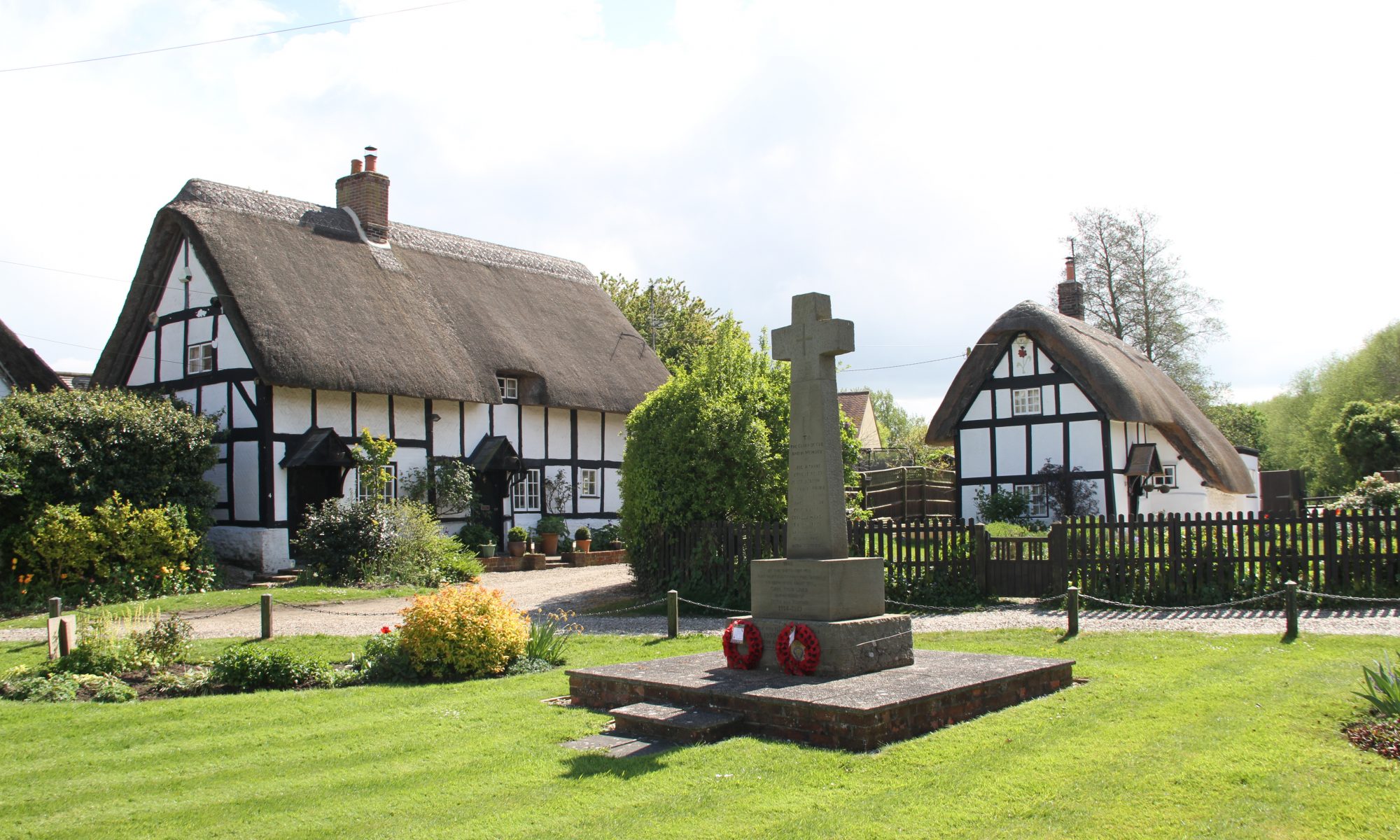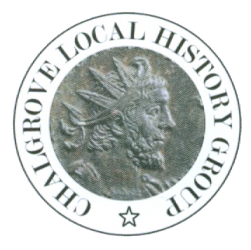Jackson’s Oxford Journal – Dated Saturday, August 4, 1832
Murder in Chalgrove
On Tuesday Se’nnight Frederick Phelps and James Bunce of Chalgrove, in this county, having been drinking for several hours at the Red Lion public house in that village, kept by the father of Phelps, left the house about four o’clock in the morning, intoxicated, and proceeded to the house of Joseph Costar, a blacksmith, who had a beer licence – called him up, and wished to have some beer. He refused to let them have any, in consequence of which they beat him most violently. Costar’s wife ran for the constable, who lived near them, and requested his assistance. He came and expostulated with Phelps and Bunce on the impropriety of their conduct, and at length they promised to go to their respective homes. Costar, whose shop was at the extremity of the village, went to his work. Half an hour afterwards Phelps and Bunce went to his shop and attacked him with great violence, throwing a prong at him, which entered his skull. Phelps then seized a sledge hammer, and struck Costar a blow on the head, from the effects of which he died on Saturday. An inquest was held on the body, before Mr. Cooke, one of the coroners for the county, who returned a verdict of wilful murder against Phelps and Bunce, the latter of whom has been apprehended and committed to our county gaol. Phelps has not yet been taken; 50/l reward is offered for his apprehension.
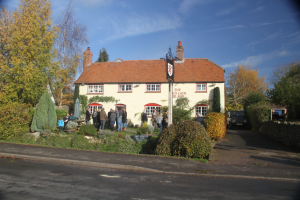
Jackson’s Oxford Journal – Dated Saturday, March 9, 1833
Oxfordshire Assizes
The Murder at Chalgrove – Trial
Joseph Bunce was indicted for the Wilful Murder of Jos. Costar, at the parish of Chalgrove, on the 24th of July 1ast. There was a second count charging the prisoner with aiding and abetting a man named Phelp in the murder. Mr. Justice and Mr. Talbot conducted the prosecution, and Mr. Curwood defended the prisoner.
It appeared from the evidence of Daniel Phelp, a publican, and father of Phelp named in the indictment that the prisoner and the son of the witness were drinking at witness’s house until three or four o’clock in the morning; they were not sober when they left, but the prisoner was the most intoxicated of the two.
Richard Coles, a wheelwright, at Chalgrove, saw Phelp and Bunce at the house of the deceased, who kept a beer shop; they asked to have some beer, and the deceased told them to go home to bed, for that they had had plenty of beer. Phelp said he would have beer, and put his shoulder to the door, as if to force it open; it was at that time locked. Costar told him to leave the door alone, when Phelp struck him with his fist. Costar then went and fetched a three grained fork, with which he struck at Phelp three or four times, but he did not hit him. Bunce took the fork from Costar and gave it to Fred. Phelp’s wife, who was standing by; she gave the fork to witness, who throw it into Costar’s garden. Costar than ran away, and was followed by Phelp. In a few minutes Costar returned with a fold bar, when Phelp towards him; Bunce stood still, but could see what was going on; Costar desired Phelp to stand back, or he would lay him down with the bar. Phelp would not stand back, and Costar struck him on the head, he fell; he got up again in a minute, bleeding profusely, and he tore the sleeve of Costart’s coat. Hatt, a constable, came and told Phelp to go off his ground. Costar than went towards his shop, (he is a blacksmith by trade, and his shop is about a quarter of a mile from his house.) Phelp and Bunce followed him. Costar had a spade in his hand, and desired Phelp to stand away from him and not follow him, or he would chop him down. Phelp brought Costar round into the street by the collar, and gave him in charge to the constable.
The evidence of last witness was confirmed by Hatt, the constable, who was also said he saw Phelp and Bunce afterwards at Costar’s; they wanted a pint of beer, which Mrs. Costar refused to draw. Phelp’s head was much cut, which witness rubbed with oil.
Joseph Wright, a labourer, was going to work on the 24th of July, with a prong in his hand, and he met Phelp and Bunce at the back of Costar’s shop. Bunce passed the shop, and appeared to be going home. Phelp took the prong from my shoulder, and went to the front of the shop. Bunce stood about 20 yards from the shop. I heard the prong rattle amongst the iron in the shop, and I went, as well as Bunce, to the shop; Costar was knocked down, and lay on his back, with a great stick in his hand. Witness took Costar out of the shop. Phelp fetched him a chair, and likewise some water; the prisoner appeared very sorry for what had been done, and blamed Phelp very much. _ Witness knows Bunce very well; he bears a good character; is always quiet; the deceased was a quarrelsome man, of a violent temper.
Mary Smith, living opposite Costar, heard the noise on the morning above mentioned, and ran over to Costar’s shop; saw Phelp throw the prong in at the window of the shop; and likewise a link hammer after it. Bunce stood with his hands in his pockets at the time.
Samuel Walter Viners, surgeon of Stadhampton, was called in to attend the deceased, whom he found in a dangerous state; there was a violent fracture on the side of the head, and on the upper part of the head there was a slight lacerated wound, which appeared to be done with a sharp instrument, he died on the 27th.
The deposition of Joseph Costar, taken the 26th of July, before W. F. L. Stone Esq. was then put in and read. It was to tbe following effect:- The deceased stated that on the 24th, about three or four o’clock in the morning the prisoners came to his shop, and called him up; he looked out at the window, when they requested him to come down and let them have some beer; he refused; they called him a humbug, and said if he did not they would break open his door, take all his money, and drink up all his beer. He came down and took up a dung fork, and struck Phelp with it; they took the dung forl from him; that Bunce struck him over the eye with the prong, and afterwards thrust it through his hat into his head; that he pulled it out himself, and that Phelp afterwards struck him on the breast with the hammer.
Chas. Wingfield, Esq. – I am a surgeon. I saw Costar on the 25th of July last, and again on the 27th; had some conversation with him; his mental faculties were surprisingly good, considering the injury he had sustained. I assisted in the post mortem examination; the scull was beaten in; the membrane was injured; I could pass my finger into the brain. I think all the injury must have been done with a blunt instrument; I think not with a prong. I did not observe any puncture in the front of the head; there was a slight wound on the forehead; the scull was not penetrated; the wounds were the cause of death.
The Learned Judge, in summing up in a very explicit and clear manner, commented upon the evidence, and pointed out the particular parts of it necessary for the deliberate attention of the Jury; in which he adverted to the declaration made by the deceased in his dying moments before the Magistrate.
The jury consulted together for a few minutes , and then returned a verdict of Not Guilty.
Note: This article names the defendant as Joseph Bunce it should be James Bunce, as can be seen in the original report of the incident in August 1832 and in the Summary Book for the courts of Oxfordshire.

Additional information.
Joseph Costar:
From the parish registers we know that Joseph Costar was buried at St Mary’s, Chalgrove on 1st August 1832 and his age was 41 years.
Joseph Costar left a widow Mary Ann (nee Wiggins) who in 1835 married Thomas Blacknal Carter. Joseph and Mary had 3 children: Maria born 1828; Joseph born 1830 – died: 1833 and John born 1832.
To see more information about Joseph Costar’s family follow this link.
James Bunce:
James Bunce was the son of William & Hannah. He had five siblings: Stephen; Charles; George; Mary Ann & William.
For more information about James Bunce family follow this link.
Frederick Phelps:
Frederick Phelps was the son of Daniel & Hannah (nee Hurst). He had 6 siblings: Druscilla; Abraham; Sarah; Maria; Mary Ann & Cornelius.
For more information about Frederick Phelps family follow this link.
The murder was not only local news but was reported across the country as can be seen from the following extracts from other regional newspapers:
Bristol Mercury – Dated: Saturday, August 11, 1832
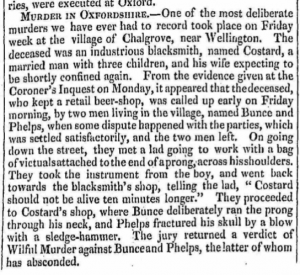
MURDER IN OXFORDSHIRE. – One of the most deliberate murders we have ever had to record took place on Friday week at the village of Chalgrove, near Wellington, The deceased was an industrious blacksmith, named Costard, a married man, with three children, and his wife expecting to be shortly confined again. From the evidence given at the Coroner’s Inquest on Monday, it appeared that the deceased, who kept a retail beer-shop, was called up early on Friday morning by two men living in the village, named Bunce and Phelps, when some dispute happened with the parties, which was settled satisfactorily, and the two men left. On going down the street, they met a lad going to work with a bag of victuals attached to the end of a prong across his shoulders. They took the instrument from the boy, and went back towards the blacksmith’s shop, telling the lad “Costard should not live ten minutes longer.” They proceeded to Costard’s shop, where Bunce deliberately ran the prong through his neck, and Phelps fractured his skull by a blow with a sledge-hammer. The jury returned a verdict of Wilful Murder against Bunce and Phelps, the later whom has absconded.
Leamington Spa Courier – Dated: Saturday, August 11, 1832
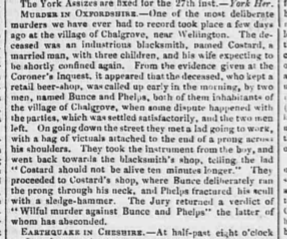
MURDER IN OXFORDSHIRE. – One of the most deliberate murders we have ever had to record took place a few days ago at the village of Chalgrove, near Wellington, The deceased was an industrious blacksmith, named Costard, a married man, with three children, and his wife expecting to be shortly confined again. From the evidence given at the Coroner’s Inquest, it appeared that the deceased, who kept a retail beer-shop, was called up early on the morning by two men, named Bunce and Phelps, both of them inhabitants of the village of Chalgrove, when some dispute happened with the parties, which was settled satisfactorily, and the two men left. On going down the street, they met a lad going to work with a bag of victuals attached to the end of a prong across his shoulders. They took the instrument from the boy, and went back towards the blacksmith’s shop, telling the lad “Costard should not be alive ten minutes longer.” They proceeded to Costard’s shop, where Bunce deliberately ran the prong through his neck, and Phelps fractured his scull by a blow with a sledge-hammer. The jury returned a verdict of Wilful Murder against Bunce and Phelps, the later whom has absconded.
